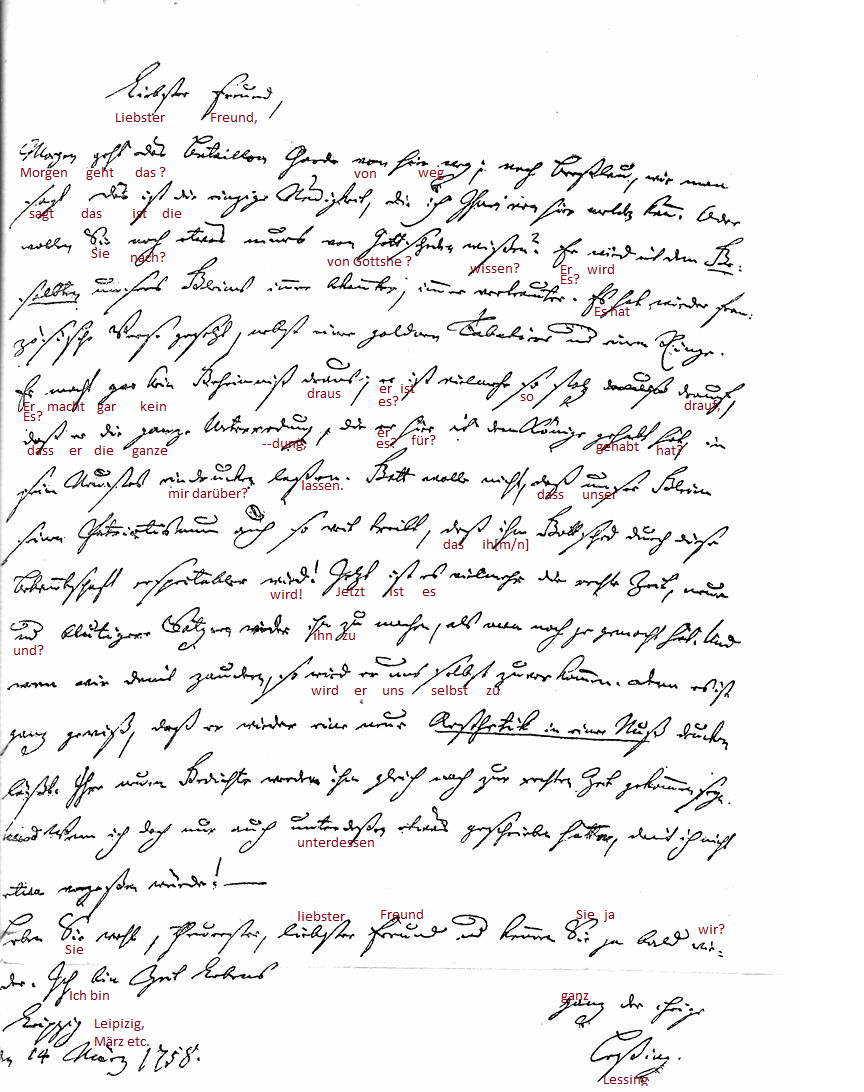My abilities in neither German nor Kurrent are very advanced, and i need some help trying to decipher a letter from 1758. I checked on the Wikimedia Commons page for the image of this letter, but sadly found no information about its contents there—let alone a full transcription. I'm interested in this because seeing a transcription should help me to better my Kurrent-reading skills, and also i'm curious for an example of some earlier modern German.
I've tried my hand at identifying some of the words, but haven't really got that far!
The image is attached and any native help would be much appreciated.
(From https://commons.m.wikimedia.org/wiki/File:Lessing_Kleist-Brief.jpg)
Edit after answer: I accidentally used the wrong /das/ in one of my notes. On the topic of missing eszetts, i thought one of those big long words said 'Geheimnis', but the double s threw me off, and so i assumed the first letter to be a B, despite its similarity to how i write my Gs, and abandoned trying to work it out. Nice to see this did indeed bring to light some differences to note.

